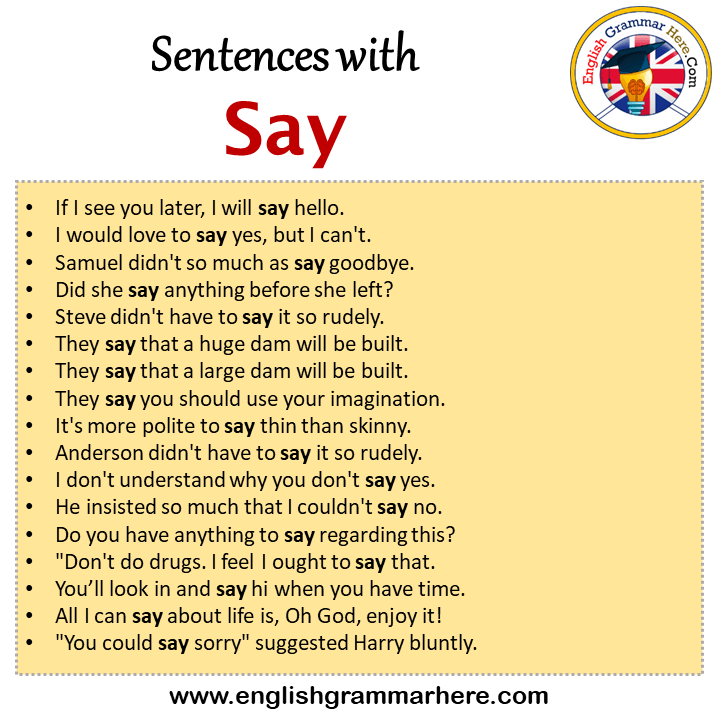How To Say 'Whoever Moves First Is Gay' In Spanish: Unpacking A Playful Phrase
Have you ever found yourself in a playful standoff with friends, maybe during a game or just while hanging out, where someone declares, "Whoever moves first is gay!" It's a common, informal saying in many places, often used for a bit of silly fun. You might be wondering, what's the equivalent of this very specific, jocular phrase in Spanish? You know, how do people express that same kind of lighthearted challenge? Well, we're going to talk about that here, actually, and how such things are expressed in another language.
It's interesting, isn't it, how language allows us to express so many different thoughts, opinions, or even just playful suggestions? Just like when you want to state a fact or share a judgment, using your voice to express something with words, you also use words to set up a friendly dare. This particular phrase, in English, pretty much sets a fun, if a bit crude, condition for someone to "lose" a staring contest or a moment of stillness. It’s about that quick, verbal declaration that changes the mood of a moment, and so, it’s worth looking at how Spanish speakers might do the same thing.
Learning how to say such a phrase in another language, you see, involves more than just swapping words. It means getting a feel for the culture, for how people play with words, and for what’s considered funny or just a little bit out there. We'll explore the core Spanish expressions that come close to this idea, talk about how the "gay" element might sometimes be added in informal settings, and, perhaps most importantly, discuss when it's perfectly fine to use such phrases and when you should absolutely, definitely hold back. It’s pretty much about saying things with a bit of thought, too.
- Aldi Cheese Recalls
- Black And Tiger
- Bernadette San Pedro Bayot
- What Year Did Michael Jackson Die
- Ellen Degeneres Moving
Table of Contents
- The Core Phrase in Spanish: "El que se mueve, pierde"
- Common Variations and Cultural Context
- Why This Phrase? Understanding the Playful Insult
- Beyond the Direct Translation: Other Ways to "Lose" Playfully
- The Art of "Saying" in Spanish
- Frequently Asked Questions (FAQs)
The Core Phrase in Spanish: "El que se mueve, pierde"
Literal Meaning and Common Usage
The most direct and widely used Spanish phrase that captures the essence of "whoever moves first, loses" is "El que se mueve, pierde." This phrase, honestly, is very straightforward. It means, quite simply, "The one who moves, loses." It's a classic saying used in games like "Red Light, Green Light" or any situation where the goal is to stay still. You'll hear it among kids, teenagers, and even adults when they're having a bit of fun. It's universally understood in Spanish-speaking countries as a rule for a stillness challenge, you know, a pretty common thing.
This expression is, in a way, the foundation. It sets the condition for the game or the challenge. When someone declares "El que se mueve, pierde," everyone knows the rules instantly. It's a simple, clear statement, much like stating a fact, that governs the moment. It really gets the message across without needing extra words, and it's something people often use to begin a bit of lighthearted competition, too.
Adding the "Gay" Element: Cultural Nuances
Now, about adding the "is gay" part. In some very informal, often younger, circles, people might add a word like "maricón" or "gay" to the end of "El que se mueve, pierde." This would make it something like "El que se mueve, maricón" or "El que se mueve, es gay." This is done, in some respects, to make the "loser" aspect even more of a playful, exaggerated insult, a bit like saying "you're so silly for moving!" but using a word that can be very hurtful. It's really important to know that while some close friends might use this among themselves as a joke, these words can be deeply offensive to others, and it's not a polite or widely accepted way to talk, obviously.
- Erin Siena Jobs
- Skai Jackson Boyfriend
- Montana Jordan Wife
- Cereal Product Recalls
- Movies To Stream This Weekend
The humor, if you can call it that, comes from the informal, almost childish, exaggeration of the "loss," not from actual homophobic intent, typically. However, the impact of words can go beyond intent, and using such terms can cause real offense. So, while it's how some might express it in a very specific, informal context, it's something to approach with a lot of caution. It's pretty much a phrase that exists in certain casual spaces, but it's not one you'd want to just say anywhere, or to anyone, you know.
Common Variations and Cultural Context
"El que se mueve, pierde" - The Classic
The phrase "El que se mueve, pierde" stands alone as the most common and accepted way to declare the rules of a stillness game in Spanish. It's clean, clear, and doesn't carry any potentially harmful connotations. This is the version you'll hear most often across different age groups and social settings. It's just a simple, straightforward declaration of the game's condition, much like how you would state a fact, and it is widely understood by everyone, you see.
This classic phrase is a staple of childhood games and casual challenges, and it works perfectly well on its own. It conveys the message completely. When you want to set up a quick, fun game where someone "loses" by moving, this is your go-to. It's a phrase that has had its say in countless playful moments, honestly, and it continues to be the standard choice.
Adding the Punchline: When and Where It's Heard (and Why Caution is Key)
As we talked about, the addition of a word like "maricón" or "gay" to the core phrase is something you might hear in very, very informal settings, often among younger people who are close friends. It’s used as a jocular, though crude, way to amplify the "loser" status. It's a kind of informal slang, and just like any slang, its meaning and acceptability can vary wildly depending on who is saying it and who is hearing it. You have to be very, very careful with this, because words, you know, carry weight.
This type of addition is not part of standard Spanish, and it's certainly not something you'd find in a dictionary as part of the idiom. It's a cultural nuance, a kind of inside joke or a way to be "edgy" in certain social circles. However, it's absolutely vital to remember that words like "maricón" can be deeply offensive and are often used as homophobic slurs. Even if the intent is "just kidding," the impact on someone who hears it can be very real and hurtful. It's pretty much a situation where you need to think about the bigger picture, too.
Regional Differences and Usage
The use of such informal, added punchlines can also vary by region. What might be heard in one part of a Spanish-speaking country might not be common, or even understood, in another. Language, you know, has its own regional flavors. This means that even if you hear it used by friends in one place, it doesn't mean it's universally accepted or even recognized everywhere else. It's almost like a secret handshake among a specific group, and you have to be in the know, you see.
It's always a good idea to listen to how native speakers in a particular area use language, especially informal expressions. This helps you understand the local customs and avoid misunderstandings. When it comes to phrases that touch on sensitive topics, even playfully, regional awareness becomes even more important. You just don't want to accidentally say something that lands wrong, you know, and that, is that.
Why This Phrase? Understanding the Playful Insult
The Psychology of Playful Challenges
Playful challenges, like "whoever moves first loses," tap into a very basic human desire for competition and a bit of lighthearted teasing. The "insult" part, when added, is often meant to be an exaggerated, over-the-top declaration of the "loser's" fate. It's meant to be so ridiculous that it becomes funny, pushing the boundaries of what's considered a "loss." It's a way to make the stakes feel higher, even if they're completely imaginary. You might say it's about adding a bit of spice to a simple game, too.
This kind of language, honestly, is about creating a shared moment of amusement. It's about bonding through a silly dare. The more absurd the "consequence" for losing, the funnier it's supposed to be within that specific group. It’s almost like a verbal nudge, encouraging someone to stay still, or else face a silly, declared "punishment." It’s pretty much a common way people interact in informal settings, you know.
When to Use It (and When to Absolutely Avoid It)
When it comes to using "El que se mueve, pierde," you're generally in the clear. It's a widely accepted and harmless phrase for games. You can use it with friends, family, and even kids without much worry. It's just a standard way to express a rule for a game, a bit like saying "your turn," or something similar. It really is quite simple, that.
However, when considering adding the "gay" element, the answer changes dramatically. You should absolutely, definitely, only use such a phrase, if at all, with very close friends who you know for certain will understand the jocular, non-literal intent and will not be offended. This means people who share your specific sense of humor and who you know are not sensitive to such language. Even then, it's a risky choice. It’s generally best to avoid it in any public setting, with people you don't know well, in professional environments, or if there's even the slightest chance it could be misinterpreted or cause offense. Language, after all, has a lot of power, and you want to use it thoughtfully. It's just a good rule to follow, basically.
Beyond the Direct Translation: Other Ways to "Lose" Playfully
Simple Phrases for Losing
If you want to playfully declare someone a "loser" in Spanish without any potentially offensive additions, there are plenty of simple, clear options. For example, you could just say "¡Perdiste!" which means "You lost!" It's direct and gets the point across. Another common one is "¡Te tocó!" meaning "It's your turn!" or "You got it!" in the sense of being the one who "lost" or was chosen. These are pretty much standard, everyday ways to express a loss in a game, you know.
You can also use "¡
- Caleb James Goddard
- Schuyler Frances Fox
- Aldi Cheese Recalls
- Winona Ryder Young
- Chris Farley Passed Away

What did you say?

English Grammar Here - Page 589 of 995 - Grammar Documents and Notes

Hi! 50+ Creative Ways to Say "Hi" in English (Formal and Informal) • 7ESL